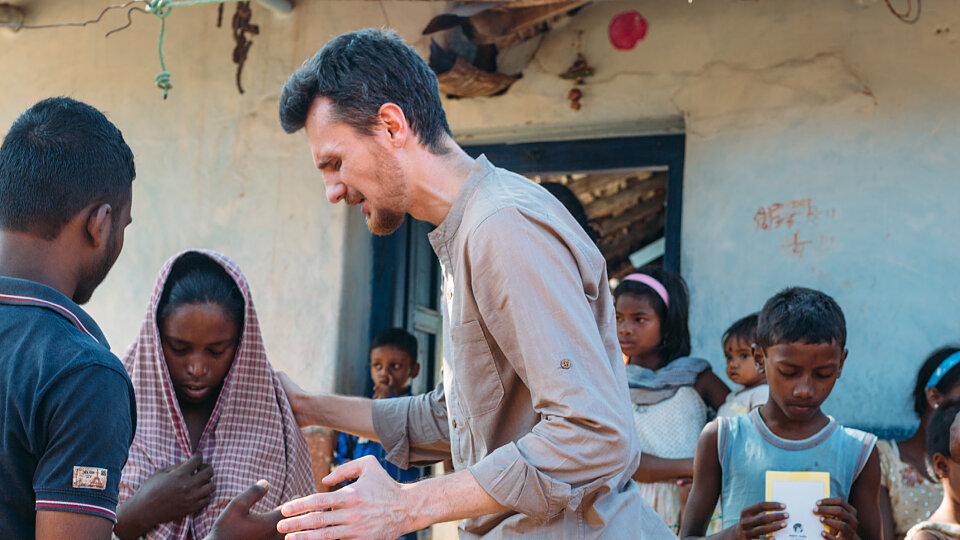Missionaries Need Ministry, Too
In 1929, Dr. William Leslie returned to America as a discouraged, disheartened missionary. 17 years earlier, he had felt the call of God to go to the Democratic Republic of the Congo and bring the gospel to unreached tribal peoples.
But in his almost two decades of ministry, Leslie didn’t make a single convert among the Yansi people in the Congo. He returned to America and died eight years later, still feeling like he had failed to make a difference for Christ.
Eighty-four years later, a new team of missionaries attempted to reach the same group of Yansi people in the DRC. They assumed that some tribal people may have had some exposure to the name of Jesus, but no real understanding of who He was.
The team was stunned to find a vibrant network of churches in the dense jungle region where Leslie was stationed and had served. Thousands of people had come to Christ, planting eight churches in each of the villages in the region. It turned out, Dr. William Leslie—who died disappointed and discouraged—had made a remarkable contribution for the gospel of Christ.
You might be wondering why I’m telling you the story of a discouraged missionary who never lived to see the fruits of his labor, especially in this series where we’re focusing on the subject of making disciples. My point is this: we have no power to make someone accept Christ. We can’t guarantee a great harvest of souls through our efforts. We can sow the seeds and reap the harvest, but only God can cause the seed to come to life, take root and grow.
Evangelistic success is not measured by quantity of conversions or the quality of disciples, but faithfulness to the task before us.
An all-powerful, sovereign God doesn’t need us because He can’t reach people without us. No, we are simply privileged to co-labor with Christ, included in the process of God’s marvelous plan of salvation. And as we bless others with the gospel, we are blessed through obeying and following God.
The missionary will be developed by God as they deliver the word of God.
Don’t read that sentence and think to yourself, Oh, I’m not a missionary in a country far away, so these truths don’t apply to me.
Beloved, we need to radically redefine what it means to be a missionary for Christ. A missionary is not just someone who comes to your church and asks for money so they can live in a foreign land and preach the gospel to people who have never heard it before.
Every Christian is a missionary! We all have the same mission: whether you’re appointed to a remote desert region, jungle village, boardroom, school, or a recreational tennis league.
As we all do the work of missionaries in our assigned mission field, we can eagerly await God to develop our own walk just as much as He uses us to teach others.
Jesus continues His instructions to His 72 missionaries by saying, “Carry no moneybag, no knapsack, no sandals, and greet no one on the road” (Luke 10:4).
The phrase “greet no one on the road” doesn’t mean Jesus is telling His followers to be rude or antisocial. In Israeli culture, this phrase was related to a stranger being invited to dine and stay— sometimes for multiple days or weeks—in the home of someone they meet along the way.
Jesus is telling them to not focus on money, bags, clothing, or even food. Everything a person might need to survive an extended trip becomes a matter of faith. Jesus is teaching His followers what it means to rely on Him for everything: funding, food, shelter, and necessities.
Now this is a unique “mission trip” for these 72 men, and the restrictions will change later on, allowing them to raise funds and establish outposts.
But in this early missionary training session, they were being taught a principle Hudson Taylor would later call “God-consciousness”—a conscious awareness that God was consciously aware of them and would care for their every need.
I would encourage you to read the stories of George Müller and the ways God provided for him as he served orphaned children in England.
When you obey God and faithfully follow His commands, you will be amazed at what He can do when you leave the results of your work to Him and trust Him for your needs— both great and small.
Jesus continues the theme of developing the mission-workers when He says, “Whenever you enter a town and they receive you, eat what is set before you” (Luke 10:8).
When I was a young boy, my missionary parents would take my siblings and me to the homes of supporters and she would remind us of this poem:
"Where He leads me, I will follow; What He feeds me, I will swallow!”
That was easy when we were offered mashed potatoes and grilled chicken, but not so easy when served lima beans and liver!
The point is, the work of a missionary may take you to places and put you in situations you never would have expected, especially when you are crossing racial or cultural barriers.
As you willingly submit your life to be stretched beyond your comfort zones by God, you will trust Him more and rely on Him more every day.



Add a Comment
Comments